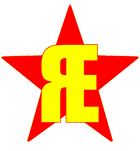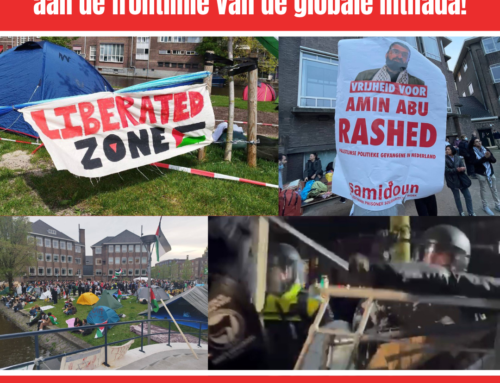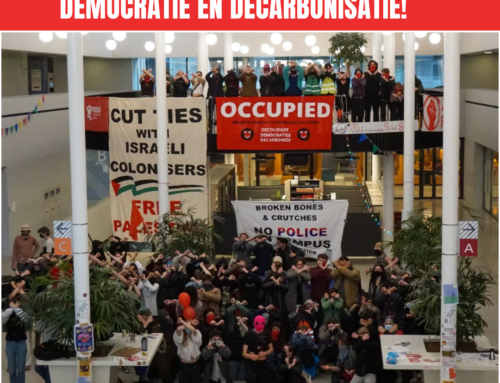Revolutionaire Eenheid en Anakbayan-Europe nodigen jullie van harte uit om ons te vergezellen in een discussie met Rasmea Odeh, een groot activiste in de strijd voor rechtvaardigheid voor de Palestijnen en alle onderdrukte volkeren.
(Volledige bio volgt)
De avond draait om het thema anti-imperialisme: de revolutionaire vrouwen in de voorhoede van deze strijd in hun gemeenschappen buiten hun geboorteland, en de politierepressie van activisten.
De klauwen van de imperialistische staten in het Westen reiken vaak verder dan de vroeger of tegenwoordig gekoloniseerde landen. Van Palestina tot aan de Filipijnen is imperialisme een dodelijke macht die zowel economische, politieke als sociale controle uitoefent. Het verbind onze strijd en verenigd alle onderdrukte volkeren. Het gevecht tegen imperialisme van binnenuit de onderdrukker’s landen is cruciaal voor de bredere strijd. En regeringen treden hardhandig op tegen zulke activisten, voornamelijk organisatoren rondom Palestina. We zien het vaker gebeuren in ons werk in Nederland, en Rasmea’s zaak heeft de maatstaf vastgesteld waarlangs de VS Palestijnse organisatoren legt.
Update:
Door druk vanuit de zionistische lobby hebben we de locatie van de bijeenkomst verplaatst. De locatie (in Amsterdam) wordt vrijgegeven aan eenieder die zich registreert als bezoeker via: deze link
——————————————————————————————
Revolutionaire Eenheid and Anakbayan-Europe are pleased to invite you to join us in conversation with Rasmea Odeh, champion of fighting for justice for Palestinians and oppressed peoples. (Full bio below)
The evening will focus on the anti-imperialism; the revolutionary women leading this struggle in their communities outside their home country and police targeting of activists in this line of work.
The clutch of the imperialist states in the West extends beyond countries currently or formerly colonized. From Palestine to the Philippines, imperialism is a deadly force that exerts economic, political and social control. It ties our struggles together and unites all oppressed peoples. The fight from inside the oppressor’s countries is crucial to the wider resistance. And governments are cracking down on activists, particularly organisers around Palestine. We see it happening increasingly with our work in the Netherlands, and Rasmea’s case has set the status quo of how the US views Palestinian organisers.
Bio:
Rasmea Odeh is a leading member of Chicago’s Palestinian, Arab, and Muslim communities, and her decade of service in Chicago has changed the lives of thousands of people, particularly disenfranchised Arab women and their families. She has been with the Arab American Action Network (AAAN) since 2004, and is responsible for the management of day-to-day operations and the coordination of its Arab Women’s Committee, which has a membership of nearly 600 and leads the organization’s work in the areas of defending civil liberties and immigrants’ rights. She is a mentor to hundreds of immigrant women, as well as many members of the AAAN’s staff and board, and is a well-known and respected organizer throughout Chicagoland, the U.S. and the world.
In 2013, Rasmea received the Outstanding Community Leader Award from the Chicago Cultural Alliance, which described her as a woman who has “dedicated over 40 years of her life to the empowerment of Arab women, first in her homes of Palestine, Jordan and Lebanon, where she was an activist and practicing attorney, and then the past 10 years in Chicago.”
As a college student, Rasmea was arrested in 1969 by the Israeli police, along with as many as 500 others, and accused of involvement in two bombings. She was horrifically tortured for 25 days (including electric shocks and sexual assault), as was her father in her presence; and then tried before a kangaroo Israeli military court. This tribunal has military officers, and not civilians, as prosecutors and judges, and convicts over 99% of its Palestinian prisoners. She was found guilty based on a confession coerced through torture, and then given a life sentence. In 1979, she was freed with other Palestinians in a prisoner exchange.
After living in the US for over 20 years, Rasmea was charged in 2013 with an immigration violation that was always just a pretext for a broader attempt to criminalize the Palestine liberation movement. She spent the last few years leading a powerful battle to resist this attack, joined by hundreds of supporters for every court appearance, and thousands of supporters across the country and the world. The possibility of a fair trail never flowered. Facing judges with direct financial links to Israel; prohibited from submitting information about her PTSD (due to Israeli torture) and denied reading out her full court statement. Rasmea accepted a plea agreement with no prison time. Her citizenship was revoked and she was forced to leave the country.
This is not new to Rasmea, persecuted in 1948 from her village of Lifta, and again exiled in 1967. Rasmea’s life has also been one of resistance and resilience. Her story has touched and inspired individuals, communities and movements globally.
Update:
Because of Zionist interference we have changed the location of the event. The location (in Amsterdam) will be disclosed to everyone who registers as participant through: this link






